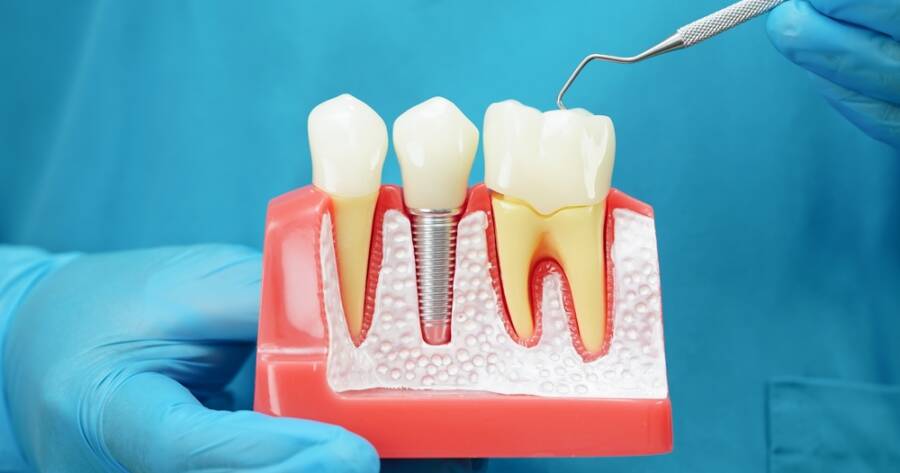Dental implants are a popular and effective solution for replacing missing or damaged teeth. They involve surgically placing a titanium post into the jawbone, which acts as a sturdy foundation for a custom-made crown, mimicking the look and function of natural teeth. This procedure not only enhances aesthetics but also preserves jawbone integrity and improves oral health. Understanding the types of implants, the surgical process, and post-operative care is crucial for anyone considering this option. Explore your options to make an informed decision about restoring your smile with dental implants.
Types of Dental Implants
Dental implants come in various types, each designed to suit different needs. The most common type is the endosteal implant, which is inserted directly into the jawbone. It typically consists of a titanium post, a connector piece, and a crown. This type of implant is often used for patients who have adequate bone density. Another type, the subperiosteal implant, sits just under the gum line, typically used for individuals who have insufficient bone density and cannot support endosteal implants.
Mini implants are smaller and are used in cases where there’s limited bone structure or for securing dentures. These implants are a good alternative when traditional implants may not be feasible. Choosing the right implant depends on the patient’s bone structure, overall health, and the number of teeth needing replacement.
The Benefits of Dental Implants
Dental implants offer a multitude of benefits over other tooth replacement options like dentures or bridges. Durability is one of the major advantages—implants can last a lifetime with proper care. Unlike dentures, which need to be replaced or adjusted over time, implants are a permanent solution. They also preserve the jawbone structure; by stimulating the bone through chewing, implants prevent the bone loss that typically occurs when teeth are missing.
Another significant benefit is the improvement in oral health. Since implants are placed into the bone, they do not require adjacent teeth to be altered, as is the case with bridges. This means the surrounding teeth remain intact and healthy, offering a more natural and long-term solution to missing teeth.
What to Expect Before, During, and After Dental Implant Surgery
Before the surgery, your dentist or oral surgeon will conduct a comprehensive evaluation, including X-rays and possibly a CT scan, to assess the condition of your jawbone and determine the best placement for the implant. The procedure is typically done under local anesthesia, but sedation options are available if you are anxious about the process.
During the surgery, the implant is placed into the jawbone, and it may take several months for the implant to fully fuse with the bone in a process called osseointegration. After the procedure, you’ll experience some swelling, bruising, and discomfort, but these should subside within a few days. Post-surgery care includes following your dentist’s instructions on oral hygiene and avoiding certain foods for a period to ensure proper healing.
Who’s the Ideal Candidate for Dental Implants?
The ideal candidate for dental implants is someone who has healthy gums and sufficient bone density in the jaw to support the implant. Candidates must also be free from active gum disease and other oral health issues. Older adults often benefit the most, as implants are a permanent solution to tooth loss, and their jawbones tend to be more stable.
However, not everyone is a good candidate. Individuals with uncontrolled diabetes, certain autoimmune diseases, or those undergoing radiation therapy may face challenges with implant success. A thorough consultation with a dentist is necessary to determine whether dental implants are the best option based on your medical history, lifestyle, and oral health.
Taking the First Step Towards Restoring Your Smile
Dental implants offer a permanent, effective solution to restore both the functionality and aesthetics of your smile. With various types of implants available, a range of benefits, and a clear understanding of the process, dental implants can significantly improve your quality of life. If you’re considering dental implants, the first step is to consult with a qualified dental professional to determine if you’re a good candidate. With the right care, dental implants can provide a long-lasting, natural-looking result that will enhance your smile for years to come.





